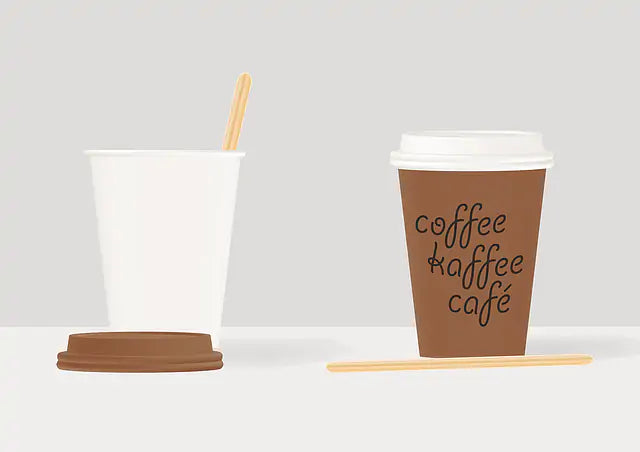Your basket is currently empty.
Shop NowAre Recyclable Paper Cups Good for the Environment?

Paper is highly recyclable, so drinking from recyclable paper cups must be good for the environment, right? Hmm, well it’s probably not as eco-friendly as you think. Here’s the lowdown on paper cups and why they may not be so great for the planet.
What the stats say about paper cups
When was the last time you drank from a paper cup? We’re guessing it was the latte to go that you treat yourself to on the way to work or at lunchtime. If so, you’re not alone. We throw away 2.5 billion paper cups every year in the UK and that’s just coffee cups. Of those cups, we only recycle only around 6% of them. The rest end up in landfill sites where they produce an annual carbon footprint of over 152,000 tonnes of carbon dioxide. That’s the equivalent of what over 33,000 cars produce each year, if you’re wondering.
‘Recyclable’ paper cups have a footprint and aren’t so easy to recycle
Even if your paper cup has recyclable or compostable on it, it still has a footprint and it's not easily recyclable. Compostable cups need to be transported to an industrial composting facility. Then consider this; what keeps your paper cup waterproof? Paper cups consist of virgin paper with a laminated plastic coating. This coating doesn’t break down easily during standard recycling processes.
So is there such a thing as a truly recyclable paper cup? An Ipswich-based company called Frugalpac produces a cup called the Frugal Cup, made from almost 100% recycled paper. Unlike most paper cup producers, they don’t use water-proofing chemicals and food-grade liner lines the cups instead of plastic. This is much more easily separated from the paper during recycling.
Bigger businesses are also getting in on the act. In 2020, Starbucks began trialling NextGen compostable cups. The cups don't have the polyethylene lining which usually makes them difficult to recycle.
Recycling paper cups - a complicated process
Paper cups are recyclable, but it’s a complicated process. As they have a plastic coating, they can’t be recycled with paper. Paper is usually broken down into pulp, but the plastic content prevents this from happening. So here’s how the process works.
- After collection and sorting, they are either baled or transported in bulk to a recycling facility.
- At the facility, they go through a pulping process which separates the paper fibres and plastic.
- The paper fibres are turned into new paper products and the plastic is used to make new plastic items.
Can I recycle paper cups at home?
In most areas, the answer is no. If you put them in with your general household waste, they’ll most likely end up in a landfill or the incinerator. Here’s what to do instead:
Take your paper cups to some high street chains including:
- Costa Coffee
- McDonald’s
- Pret a Manger
- Caffè Nero
- Greggs
These big names have all signed up to the National Cup Recycling Scheme. This means they’ll collect your cups and send them to a recycling facility that's capable of processing them properly.
- Check on Recycle Now to see if a household recycling centre in your area has food and drink carton banks for paper cups.
What are the alternatives to paper cups?
Reusable cups - Reusable cups are made of plastic so you should recycle them at the end of their life or they become just another waste stream. It actually takes more energy to produce a recyclable cup too. Some studies have shown you need to use them between 20 and 100 times before they become better for the environment than disposable cups.
Wax-lined paper cups - You can buy paper cups that are lined with wax rather than plastic. You can’t put these in your recycling bin however, you’ll need to compost them.
For more interesting articles on recycling and the environment, check out the rest of our blog and if you are looking for bins why not take a look at our options:
Sources:
https://frugalpac.com/frugal-cup/
https://www.businesswaste.co.uk/learn-about/paper-coffee-cups-disposal-and-recycling/
https://mtpak.coffee/2022/06/how-often-must-reusable-cups-used-to-be-sustainable/
